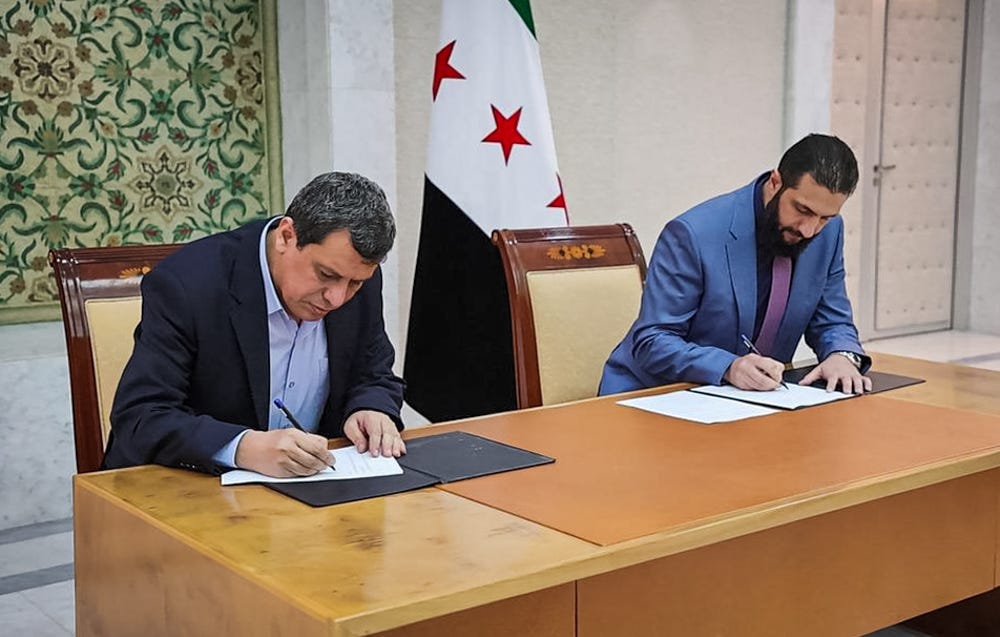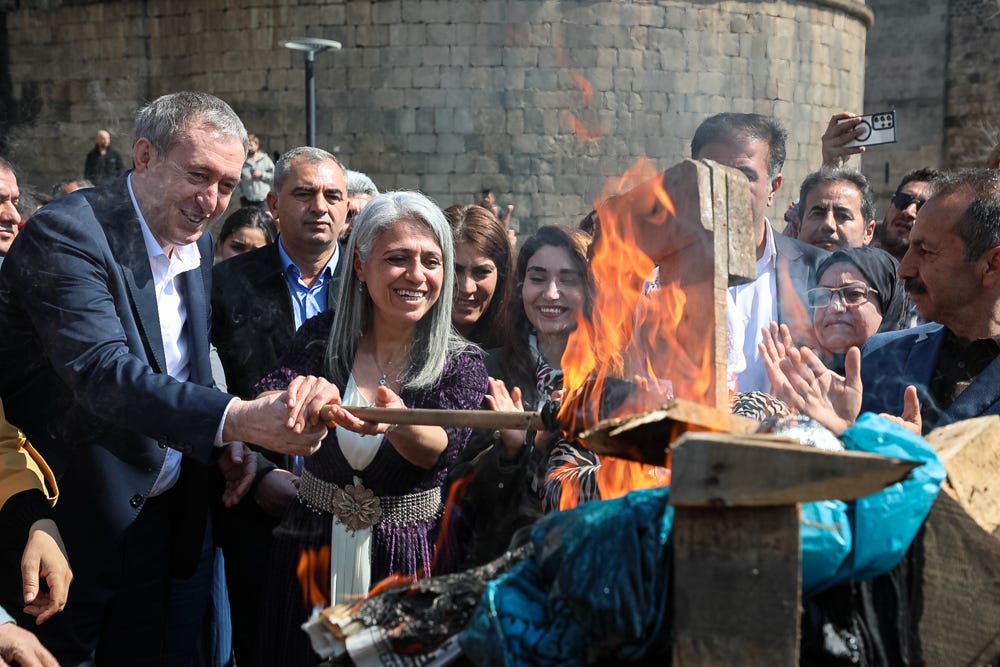Okay, so there's a bipartisan bill in the US Congress to classify Turkey as a “Middle Eastern country”. This could end the debate forever, but Europeans keep flip-flopping.
In this week’s recap:
Syria deal implications for Turkey
Clashes continue amid peace process
İmamoğlu campaigns under pressure
Domestic and diplomatic wraps
Family to name newborn “Pun”
Also from us this week:
Hilal Tok on how growing energy demands are raising coal consumption in Turkey
And for updates on the newly-passed cybersecurity law, see our Meclis recap

The peaces are falling into place. For now. Maybe.
Amid ongoing sectarian violence in Syria’s west, the nation’s Pres. Ahmed al-Sharaa and SDF head Mazloum Abdi signed a ceasefire deal Monday that will merge Syrian forces with Kurdish-led groups in the east.
The agreement is a potential breakthrough for stability in Syria with implications for Turkey but remains fragile and open to disputes due to its vague language, experts told Turkey recap.
Reportedly prompted by the nascent insurgency in Alawite stongholds and US sway on the SDF, the deal will be implemented by the end of the year. In short, it will put transport, energy and security assets under central government control.
Turkish Pres. Erdoğan welcomed the agreement along with US State Sec. Marco Rubio and Democratic Union Party (PYD) spox Salih Muslim, who underlined “no direct decision” has been made on federalism or autonomy for Syria’s east – one of many possible disputes.
Still, “cautious optimism” remains the phrase in Ankara as the arrangement could help facilitate the ongoing Turkey-PKK peace process (more below) and potentially diminish US-Turkey strains through reduced Washington-SDF cooperation in the long term.
Encapsulating the view from Ankara, the government adjacent Hürriyet columnist Abdulkadir Selvi wrote:
The deal is a significant milestone on the road to a “terror-free Turkey”.
It’s seen as positive, but “we also want to see its implementation”
Ankara expects an acceleration of “the process” – we’re not sure which one – and the withdrawal of “PKK-YPG affiliates” from Syria before 2026.
That said, Berkay Mandıracı, senior Turkey analyst at the International Crisis Group, told Turkey recap: “The PKK’s response to [the agreement] remains ambivalent.”
On a parallel track, IS prisons under SDF control are also expected to be transferred to the central government. On Sunday, Turkey, Jordan, Iraq and Syria agreed to form a joint operation and intelligence mechanism to contain IS in the region. Turkey will host a coordination summit in April.
Commenting on the overall agreement, Syrian researcher Suhail al-Ghazi said it was a positive step but he maintains concerns over security developments in eastern Syria.
“Some tribal parties that had relations with Iran may stir up trouble with the SDF, which could lead to a backlash that could impact the course of negotiations,” al-Ghazi told Turkey recap. “In previous years, we have witnessed demonstrations accompanied by violence.”
“Furthermore, the indirect link between the agreement and the peace process between Turkey and the Kurdistan Workers' Party [PKK] makes it vulnerable to relapse should negotiations falter,” he added.
Asked whether the SDF-Damascus merger might reduce the chance of new Turkish military actions in Syria, al-Ghazi said:
“Certainly, integration will help prevent military operations. I believe Turkey has an interest in demonstrating that the Syrian leadership is independent and sovereign, not subservient to it, to avoid angering Arab states.”
“Turkey will not initiate an attack as long as negotiations are ongoing,” he concluded.

Conflicting interests: Clashes continue amid peace process
Keep reading with a 7-day free trial
Subscribe to Turkey recap to keep reading this post and get 7 days of free access to the full post archives.



